Dating Discrimination Against Black Women Isn’t Talked About Enough
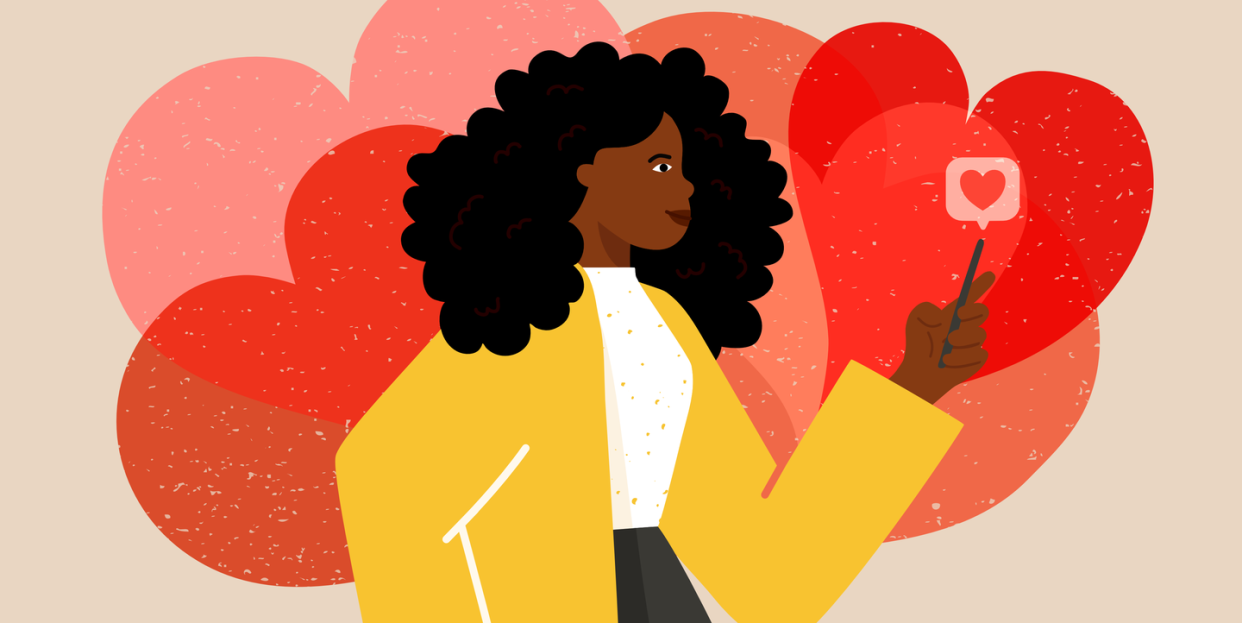
"Hearst Magazines and Yahoo may earn commission or revenue on some items through the links below."
Tiffany Crawford still vividly remembers the first boy who made her feel like she wasn’t good enough—just because she was Black.
As a teenager, she mostly dated people who weren’t Black, but that never presented any issues. “My attraction kind of was towards people outside of my race, because that’s who I was surrounded by,” the now 27-year-old TV producer from Toronto, Canada recalls.
Then, at 17, she dated a boy who opened her eyes to the ways that Black girls and women are often dismissed and cast aside.
“I remember him saying to me that if he brought me home, his grandma would not let me in the house,” she says. “It made me think, ‘I’m good enough to hook up with, but I’m not good enough to be this person’s partner.’”
The comment stuck with Crawford. After that, whenever a future relationship with a non-Black person reached the point of meeting their parents, Crawford worried about what they were going to think.
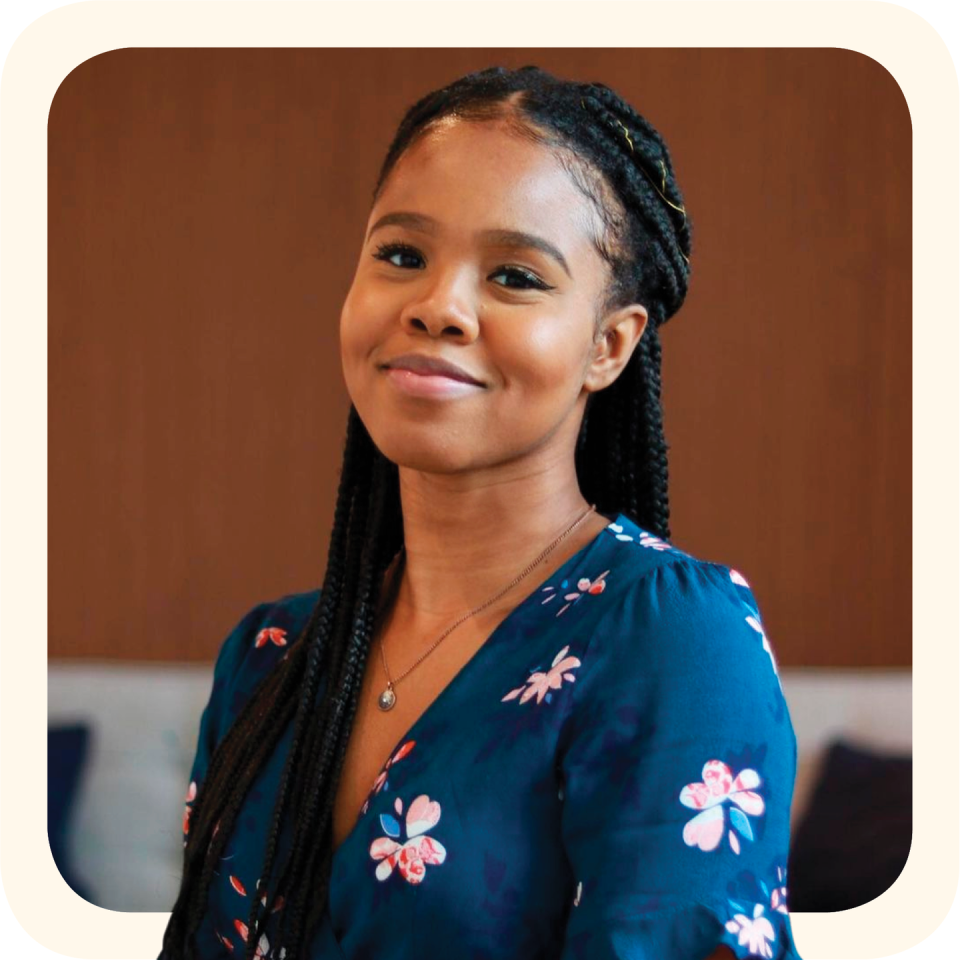
“I just got it stuck in my head that no matter what, there’s a chance that this person’s family’s not going to like me, and that means that I’m not worth considering as a real partner because of my race,” she says.
Crawford’s experience isn't rare, unfortunately. The dating landscape for Black women is often bleak and unwelcoming. Both online and IRL, Black women are navigating a dating world filled with microaggressions, colorism, and outright racism.
Black women are the demographic most likely to be unmarried, per a 2019 Pew Research analysis.
“[When] we’re thinking about Black women trying to find a Black partner, I think that there is a lot of talk about the hardness of it all,” says Giitou Neor, a therapist and licensed medical social worker based in New York. Neor notes there are several reasons Black women might face difficulties finding a suitable partner of any race.
Despite these hurdles (and the resulting mental health struggles), experts agree that there’s still plenty of hope for Black women in the dating world.
Here’s a look at some of the struggles Black women are facing, and how three women healed from past negative experiences, unlearned harmful dating patterns, and found the support they needed.
Systemic racism and white supremacy have played a big role in labeling black women as "undesirable."
These issues prop up women of other races, and make it more difficult for Black women to be recognized for their beauty, says Taryn Codner-Alexander, a licensed mental health counselor and owner of Tea for the Soul Mental Health Counseling in the Bronx, New York.
Throughout history, Black features like darker skin and kinky hair have been greatly disparaged, while more Eurocentric features like long hair and fairer skin are favored, according to the Journal of Black Psychology. This devaluing of Black women’s bodies can present major issues for Black women dating outside their race.
For Iman Abbaro, a 26-year-old Sudanese community organizer and multidisciplinary artist, growing up in the Middle East meant being forced to endure a fixation on proximity to whiteness. As the only Black girl in a predominantly Arab society, her skin tone, hair texture, and curves were degraded, which had serious impacts on her self-image.
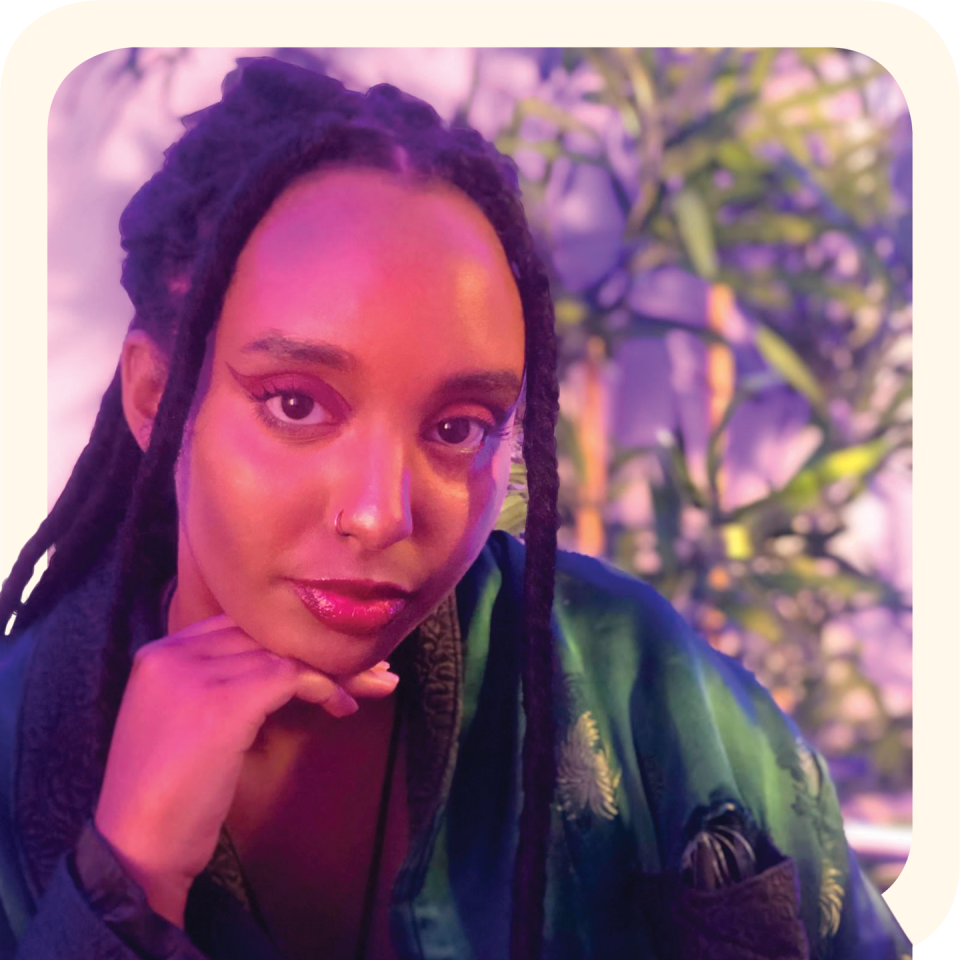
“My best friend, who was kind of my first love, would always make comments like, ‘You look so much prettier with your hair straight,’ and that pushed me to start straightening my hair all the time, which led to a lot of heat damage,” she says. He would also make comments about her curves, pushing her to work out so she could fit the Eurocentric ideal of a skinny, straight-haired girl. “I still struggle with standing up for myself and accepting myself in the way that I look, and that was one of the things that contributed to the body dysmorphia that I currently have.”
Abbaro says she didn’t know just how big an impact that relationship had on her mental state until she moved to Canada at 19. “I took a [hard] look at myself and the experience, and that led me to being celibate for over a year,” she said.
These biases around physical appearance also manifest themselves in the digital dating space. Online, Black women are considered far less desirable than white women, according to data from a 2014 study by OKCupid. After looking at millions of interactions on the site between 2009 and 2014, studying how people rated potential dates on a scale of one to five based only on a view of their profiles, researchers found that Black women received the lowest ratings of all women on the platform.
It’s not unusual for Black women to feel they’re not being seen or valued, says Celeste Vaughan Curington, assistant professor of sociology at North Carolina State University and co-author of The Dating Divide: Race and Desire in the Era of Online Romance. “I think of this one interviewee who did talk about feeling very invisible when online dating, and she questioned: ‘Is it because I’m a dark-skinned Black woman? Is it because I’m not traditionally feminine?’”
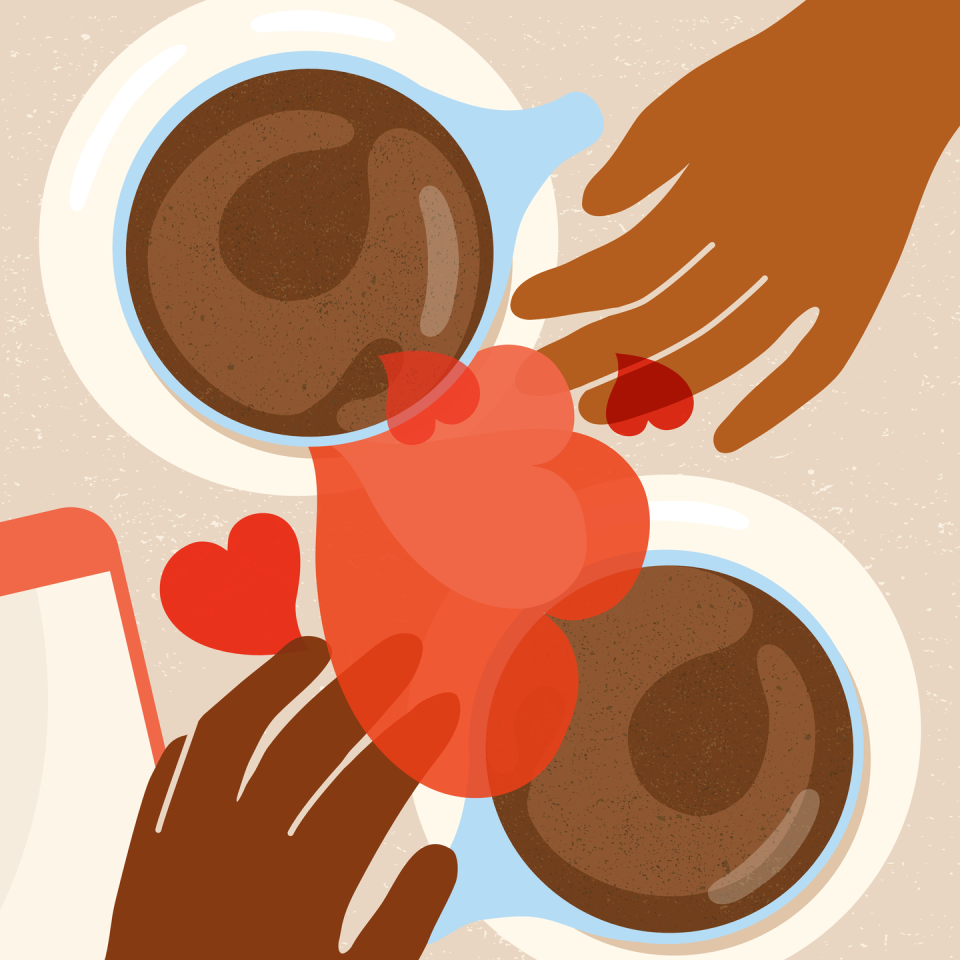
The notion that Black women aren’t feminine is also a product of the historical racist stereotyping of Black women, one that persists in popular media today. For example, tennis legend Serena Williams is consistently being called “manly” on social media.
White women tend to be characterized as feminine, delicate, or frail, while these traits are usually not afforded to Black women. Instead, Black women are often masculinized and vilified, especially when they don’t fit into these Eurocentric versions of femininity, according to a study from the journal Race and Social Problems.
Black women in the LGBTQ community also face structural barriers to finding a partner. They still face the “person-of-color outsider” status in LGBTQ communities, meaning that they are still othered for being a POC, despite being a part of or identifying with the larger queer group. And that othering makes it harder to date people outside of their race. What’s more, research published by Fordham University found that LGBTQ people of color have historically been pushed out of “gayborhoods” in the U.S. That, in turn, creates a kind of segregation that further hinders the establishment of meaningful and equitable connections.
Colorism is a challenge for many Black women as well.
Unrealistic beauty standards are also a hurdle for Black women dating Black men who have internalized colorism, and who have been socialized to find women more desirable and valuable if they fit into Eurocentric “ideals.”
“We do see that privilege in having lighter skin, lighter eyes, looser hair—really, anything that is closer to this white standard of beauty,” says Codner-Alexander.
That’s a reality that Montreal-based Melissa Murphy understands well. When she was a sophomore in college, she walked in on a conversation about her among a group of Black men. “I was kind of taken aback, and then ironically, the darkest guy in the room was like, ‘Yeah, but you have to remember, you’re really pretty for a dark-skinned girl.’”
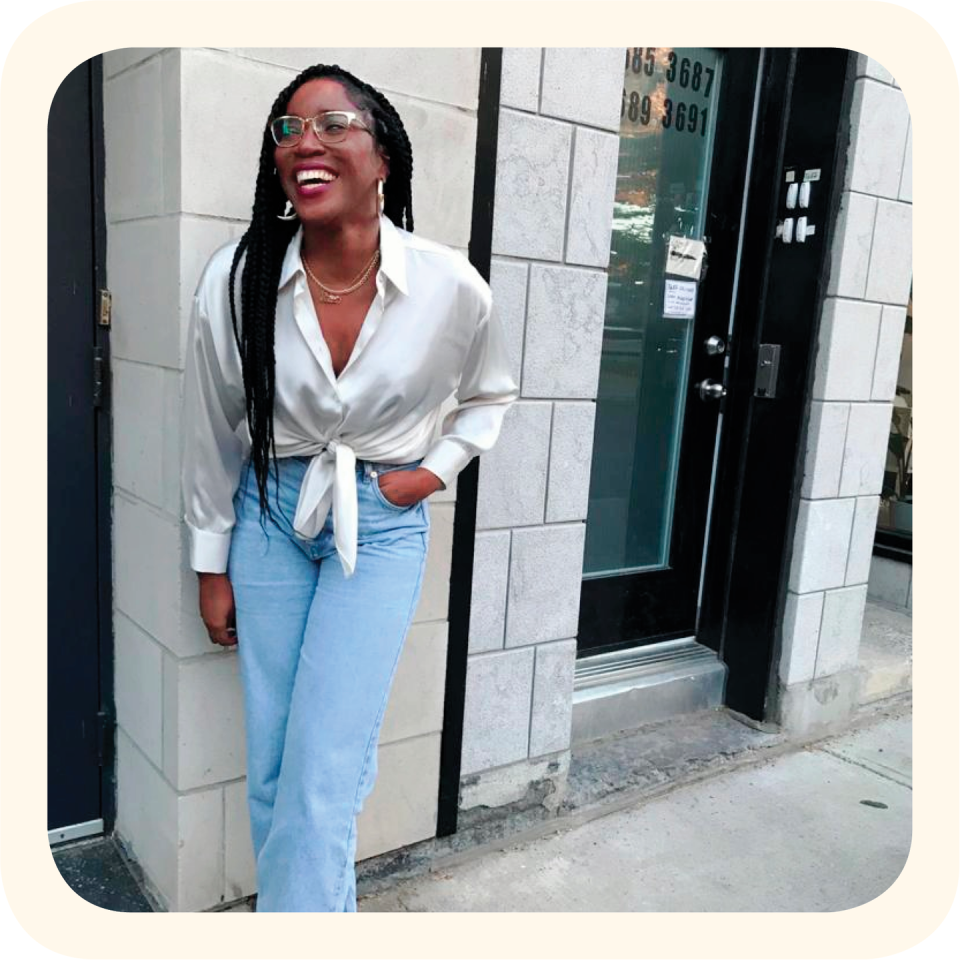
The comment was both offensive and jarring. Growing up in Trinidad and having attended a multi-racial high school in Canada, it was the first time in her life that she was put in the position of comparing herself to other Black women.
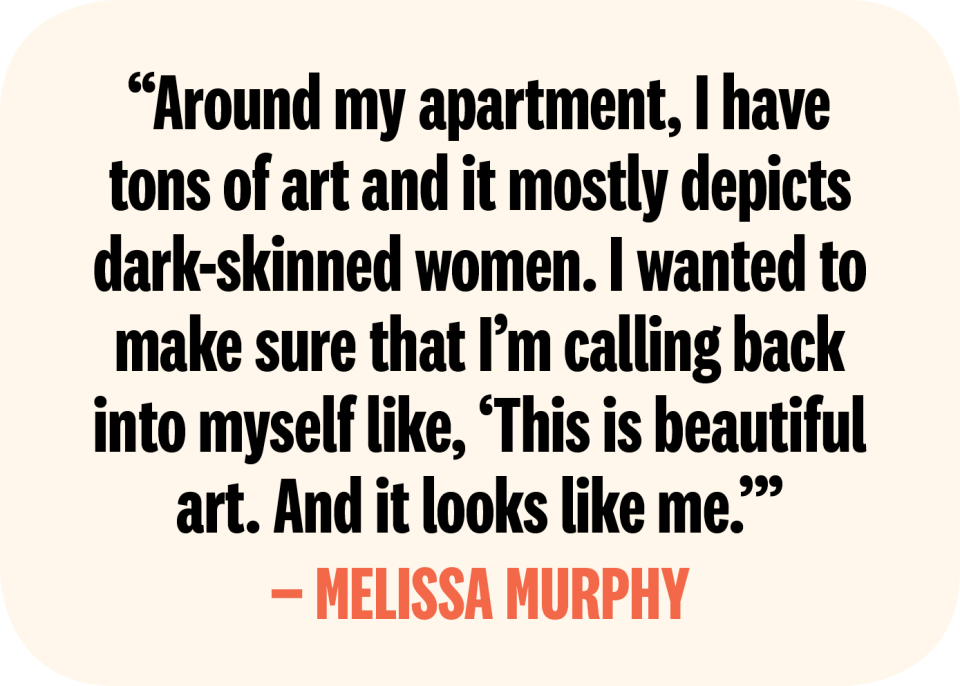
For Abbaro, dating in the Black community has still had its challenges. She remembers a hurtful incident from her college days. “I was talking to this Black guy [and he said], ‘Just so you know, I don’t date Black women. Black women are whack and I only date white girls,’” she recalls.
Black women are often exoticized and fetishized.
Being discriminated against can have major impacts on Black women’s mental and emotional health, as well as on their dating habits. In Murphy’s case, that early experience left a major mark on her psyche. “I mentally prepared myself for the rejection before it came,” she said.
Feeling exhausted and undesired, Murphy began dating unavailable men so she could bypass those feelings of dismissal if things didn’t work out. “If the rejection came, I could give myself credit [and say], ‘Well, you didn't want anything anyway.’”
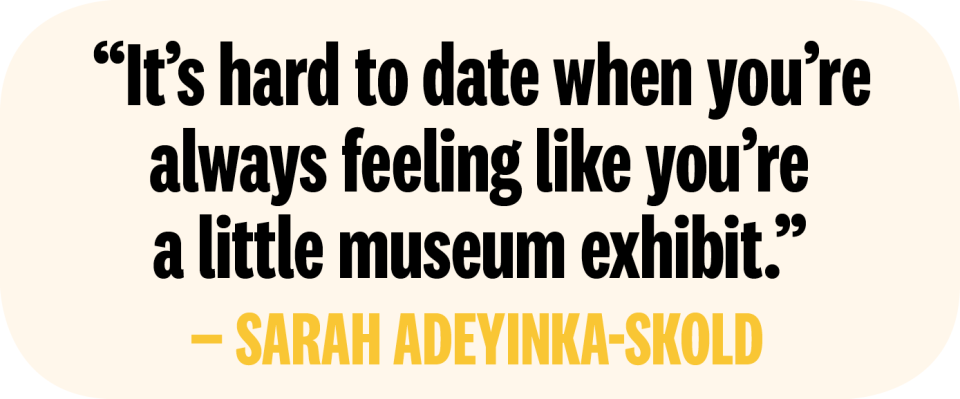
But discrimination doesn’t always look like avoidance. Sometimes it involves attention for negative reasons, says Sarah Adeyinka-Skold, PhD, assistant professor of sociology at Furman University. Non-Black men often exoticize or fetishize Black female partners. This can manifest in comments about skin tone or hair color, or even the perpetuation of age-old stereotypes about Black women being hypersexual or “freaks.”
“It’s hard to date when you’re always feeling like you’re a little museum exhibit,” says Adeyinka-Skold. “You have men who are asking, ‘Oh, can I touch your hair?’ or men who want to only date you because you’re Black, and they’ve heard about Black women’s pussy.”
During her dating hiatus, Murphy cut off all her hair. “That came with the ‘Mama Africa’ comments or comments about my complexion, and it started to cause insecurities that I didn’t have [before],” she says.
Healing and managing healthy relationships isn't easy, but it's possible.
When it comes to moving past such experiences, Abbaro says therapy has been her saving grace. “My therapist is a Black Sudanese woman, so she gets it,” she says. “I don’t have to provide any context, and whenever I tell her something she’s like, ‘Yep, yep, I know what you’re talking about.’”
Venting to her close friends has also been a welcome relief for Abbaro. “I turn to Black women a lot, because they can help me see the things that I don’t see,” she says. “Growing up [experiencing] racism and colorism and things like that, I kind of just internalized it. I never really spoke about it as much as I do now, especially when it comes to dating, so that has really helped.”
For Black women who are still in the matching or messaging stage of dating, Neor advises taking stock of their individual needs and creating specific standards around those needs.
It’s also helpful to examine other factors that might be influencing your dating decisions. Childhood events, past dating experience, and family dynamics can go a long way toward shaping how and whom we choose to date, Neor explains, so unpacking them can be crucial.
Learning more about your attachment style, for example, can help you become more aware of your patterns in relationships, and when you’re choosing a partner out of insecurity, versus true connection. “It’s more about insight into yourself,” she says. “It’s a matter of taking a full inventory on how your perspective is skewed or not skewed, or how your perspective is colored by things that you’ve been through and trying to go from there.”
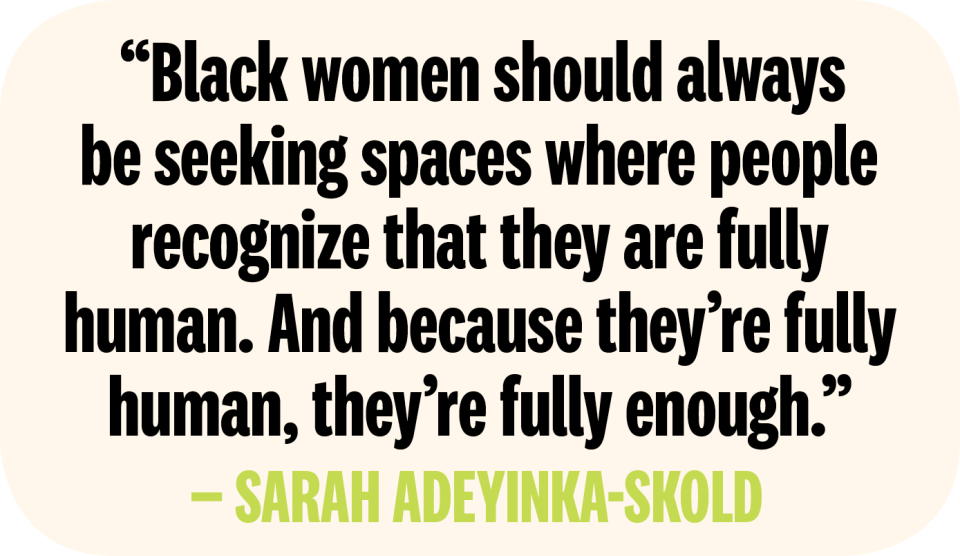
Talking openly about issues like racism and colorism with your partner is something Codner-Alexander recommends to her clients. If a Black woman is dating outside their race, they should assess whether or not the relationship feels like a safe enough space to have conversations about racial issues. “If your partner is someone who is from a group that holds privilege like the white community, are they willing to be an ally for you when you’re being discriminated against?” Codner-Alexander asks.
Adeyinka-Skold, who has had her own experiences dating non-Black men, says she had to set strict boundaries about what she was willing to accept in those relationships. “I’m not going to settle because the narrative out there is like, ‘Well, Black women just have to settle for whatever it is they get, and so you just have to be okay,’” she says. “I was like, ‘Nope, I’m going to be very clear with whoever I’m dating that my Blackness matters to me.’ So if that’s going to be a problem for them, then they’re out. I had to embrace my own humanity.”
Seeking dating spaces specifically for Black people is another option. After her negative encounters with people outside her race, Abbaro started dating Black men more often. “I find that there’s a lot more empathy,” she says. “I feel like someone who isn’t Black, they can empathize, but they just wouldn’t really get it.” Apps such as BLK, which are designed for Black singles only, could be a good route for women who want to date within their community.
Many Black women today are also choosing to be single. Some may opt for singlehood because it offers them freedom, safety, and security, as well as the opportunity to “side-step gendered responsibilities that eat up time, money, and autonomy,” per responses from a 2020 study of 24 Black women from Detroit.
Crawford considers her current relationship with a white man a safe space. “I feel very supported and given the room to feel how I need to feel and to share the thoughts that I need to share,” she says. “I never thought that would happen after that conversation with [the guy] when I was 17.”
Following Murphy’s dating hiatus, moving forward meant curating a healthy and affirming environment for herself. “Around my apartment, I have tons of art and it mostly depicts dark-skinned women,” she says. “I wanted to make sure that whether subconsciously or not, I’m calling back into myself like, ‘This is beautiful art. And not only is it beautiful, but it looks like me.’”
For Adeyinka-Skold, it is vital that Black women know, simply, that they are enough. “Black women should always be seeking spaces—whether in LGBTQ relationships or hetero relationships or polyamory—where people recognize that they are fully human,” she said. “And because they’re fully human, they’re fully enough.”
You Might Also Like

